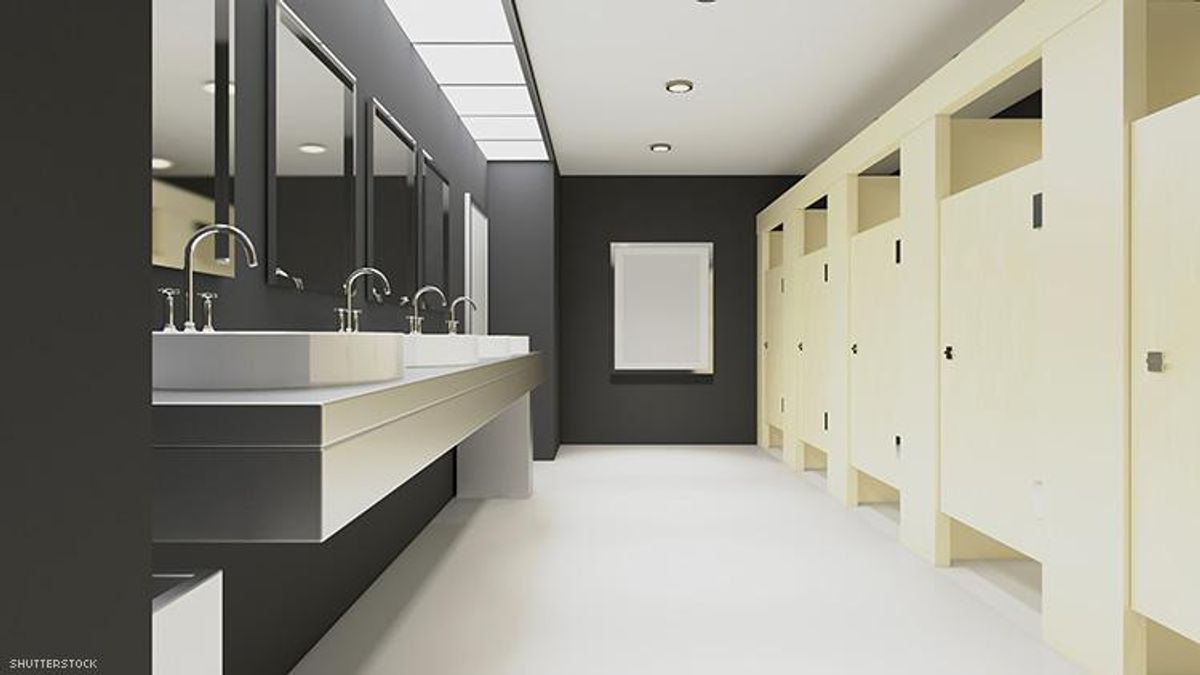North Carolina cannot use the law known as House Bill 142 to bar transgender people from using the restrooms and other facilities that match their gender identity in buildings under state management, under a settlement approved Monday by a federal judge.
U.S. District Judge Thomas D. Schroeder approved a consent decree order finalizing an agreement reached by Gov. Roy Cooper and civil rights groups representing transgender North Carolinians, settling a major issue in a three-year legal battle over the infamous House Bill 2 and HB 142, the law that replaced it. Schroeder had already ruled last year that the state could not use HB 142 to block trans access, but the agreement ends state resistance to the ruling and ends the plaintiffs' legal action over this issue. The Republican-controlled state legislature had opposed the agreement.
HB 2, passed in 2016, barred trans people from using the facilities comporting with their gender identity in any government building in the state, whether run by a state, city, or county. It also prevented any city or county from adopting or enforcing a nondiscrimination law broader than the state's -- something aimed particularly at laws banning discrimination based on sexual orientation or gender identity. Six North Carolinians sued over HB 2, with representation from Lambda Legal, the American Civil Liberties Union, and the ACLU's North Carolina affiliate.
Republican Gov. Pat McCrory had signed HB 2 into law. He lost reelection in 2016 to Democrat Roy Cooper, who as the state's attorney general had opposed HB 2 and refused to defend it in court. With Cooper as governor, the state passed HB 142 in 2017 to repeal some of the provisions of HB 2, although many LGBTQ activists said it did not go far enough; among other things, it left the issue of restroom access up to the state. The lawsuit was amended to challenge that aspect of HB 142.
The consent decree now settles that, at least in buildings controlled by the executive branch of state government. But HB 142 still prevents municipalities from passing any prohibitions on discrimination in places of public accommodation or by employers until December 2020, Lambda Legal and the ACLU noted in a press release, although those that had such laws previously can enforce them.
"This is a tremendous victory but not a complete one," Joaquin Carcano, the lead plaintiff in the case, said in the release. "While I am glad that Governor Cooper agreed to this settlement, it remains devastating to know that local protections for LGBTQ people are still banned under state law while so many members of our community continue to face violence, harassment, and discrimination simply because of who we are. The fight for full justice will continue."
Also remaining unresolved is a portion of the case challenging the lawfulness of HB 2 when it was in effect. That is on hold while the U.S. Supreme Court hears cases involving anti-LGBTQ employment discrimination, set for oral arguments October 8.














































































